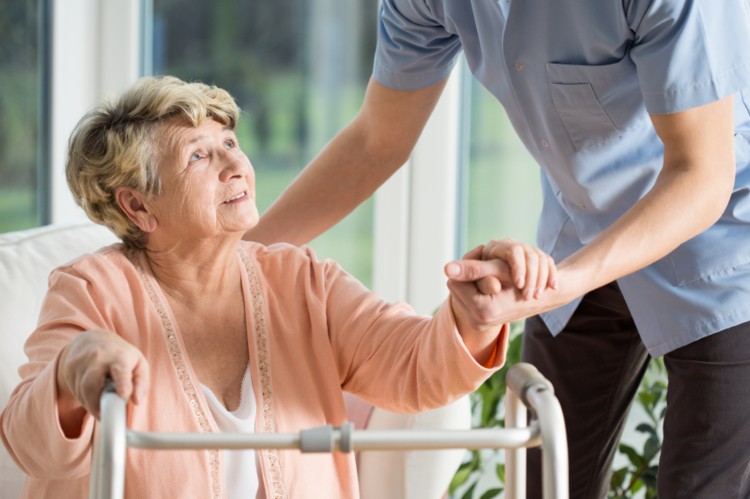Finding the right old age care taker for a loved one is a significant decision. They play a vital role in ensuring the physical, emotional, and social well-being of the elderly. A good care taker provides not just assistance but also companionship. To choose wisely, it is essential to focus on specific qualities. This guide highlights the top attributes to seek in an old age care taker in mumbai, ensuring a harmonious and supportive environment for your loved one.
Compassion and Empathy
Compassion is the cornerstone of caregiving. An old age care taker must genuinely care about the emotional and physical well-being of the elderly. Empathy allows them to understand the struggles of aging. For instance, they should show patience during moments of forgetfulness or frustration. A compassionate care taker creates a bond of trust and makes the elderly feel valued. Such a connection is essential for fostering a sense of security and belonging.
Strong Communication Skills
Effective communication is vital for understanding the needs of the elderly. An old age care taker should be a good listener and speaker. They need to explain medical routines, dietary plans, or activities clearly. Equally, they must listen to the concerns or preferences of their clients. Regular updates to family members about the health and progress of the elderly are also crucial. Strong communication ensures that everyone involved is on the same page.
Physical Strength and Stamina
Caregiving often requires physical effort. An old age care taker may need to assist with lifting, walking, or daily activities. This includes tasks like transferring someone from a wheelchair or providing support during exercises. Physical strength and stamina are vital to ensure safety while performing such duties. A care taker with good health can handle these responsibilities effectively without risking injury to themselves or the elderly.
Patience
Aging can bring about changes in behavior and habits. The elderly may face memory loss, mood swings, or slower mobility. An old age care taker must exhibit immense patience to deal with these challenges calmly. Rushing or showing irritation can affect the confidence and comfort of the elderly. A patient approach ensures a positive experience, even during difficult moments. Patience is also key to building trust and a long-term relationship.
Flexibility
Every individual has unique needs, and these needs may change over time. An old age care taker should be adaptable to varying routines and requirements. For example, they may need to work around sudden changes in medical schedules or dietary preferences. Flexibility allows them to provide personalized care that suits the elderly person’s lifestyle. Being open to adjustments ensures the care taker can handle any unexpected situations effectively.
Attention to Detail
Caregivers need to be observant. An old age care taker must notice subtle changes in health, behavior, or mood. These details can be early signs of potential health issues. For instance, changes in appetite or sleep patterns might indicate underlying problems. Attention to detail also helps in managing medications accurately. A vigilant care taker ensures nothing important is overlooked, which is critical for maintaining overall health and well-being.
Reliability
Dependability is one of the most important qualities in an old age care taker. They must be punctual and consistent in their duties. Elderly individuals often rely on routine for stability. A reliable care taker ensures that daily schedules, such as meals, medication, and activities, are followed without fail. Their commitment gives families peace of mind, knowing their loved ones are in safe and trustworthy hands.
Emotional Stability
Caregiving can be emotionally demanding. An old age care taker must remain composed and handle stressful situations with grace. They may face moments of sadness, frustration, or even resistance from the elderly. Emotional stability helps them provide consistent care without letting personal feelings interfere. A balanced approach ensures they remain focused on delivering the best support possible.
Professionalism
A professional attitude is crucial in caregiving. An old age care taker should maintain boundaries while being friendly and approachable. They must respect the privacy and dignity of the elderly. Professionalism also involves punctuality, maintaining hygiene, and adhering to care plans. A professional care taker sets a standard of trust and reliability that benefits both the elderly and their families.
Problem-Solving Skills
Unexpected situations can arise at any time. An old age care taker must be resourceful and capable of quick thinking. Whether it’s handling a minor medical emergency or resolving a scheduling conflict, problem-solving skills are essential. A proactive approach helps ensure the safety and comfort of the elderly. Such skills also demonstrate their ability to handle responsibilities independently.
Knowledge of Elderly Care
A competent old age care taker should have a basic understanding of elderly care. This includes knowledge of common medical conditions, dietary needs, and mobility assistance. Proper training or experience in caregiving enhances their ability to provide effective support. Knowledgeable care takers can identify issues early and take appropriate action. They also ensure that the elderly receive care tailored to their specific requirements.
Respect for Independence
Elderly individuals value their independence. An old age care taker should encourage self-reliance whenever possible. For instance, assisting without overstepping boundaries allows the elderly to feel capable. Respecting their independence fosters dignity and boosts confidence. A balanced approach helps maintain their autonomy while offering the necessary support.
A Positive Attitude
A cheerful and optimistic attitude can uplift the spirits of the elderly. An old age care taker with a positive demeanor creates a warm and welcoming environment. Their enthusiasm can motivate the elderly to engage in activities or social interactions. Positivity also helps in overcoming challenges with a solution-oriented mindset. A care taker who radiates positivity contributes significantly to emotional well-being.
Cultural Sensitivity
Elderly care often involves understanding cultural or religious preferences. An old age care taker should respect these practices and integrate them into daily routines. This includes dietary restrictions, prayer times, or specific traditions. Cultural sensitivity ensures that the elderly feel respected and understood. Such awareness strengthens the bond between the care taker and the individual.
Organizational Skills
Effective caregiving requires excellent organizational skills. An old age care taker must manage schedules, medications, and daily activities efficiently. Proper planning ensures that everything runs smoothly without unnecessary stress. Organizational skills also include maintaining records or reports about the elderly’s health. A well-organized care taker brings structure and stability to the caregiving process.
Ability to Provide Companionship
Loneliness is a common concern among the elderly. An old age care taker should also be a companion, offering emotional support and engagement. This includes spending time talking, playing games, or accompanying them for walks. Companionship enhances the mental and emotional well-being of the elderly. A care taker who builds a genuine connection becomes an integral part of their life.
Commitment to Continuous Learning
Caregiving methods and needs evolve over time. An old age care taker should be open to learning and improving their skills. This includes attending training sessions or staying updated on medical advancements. Continuous learning ensures they can provide the best possible care. A dedicated care taker always seeks to enhance their abilities to meet the needs of the elderly effectively.
Choosing the right old age care taker involves assessing their skills, qualities, and dedication. The ideal care taker combines compassion, professionalism, and adaptability to ensure holistic care. They should prioritize the physical and emotional well-being of the elderly. With the right qualities, a care taker can significantly improve the quality of life for seniors. By focusing on these attributes, families can make informed decisions that benefit their loved ones.








